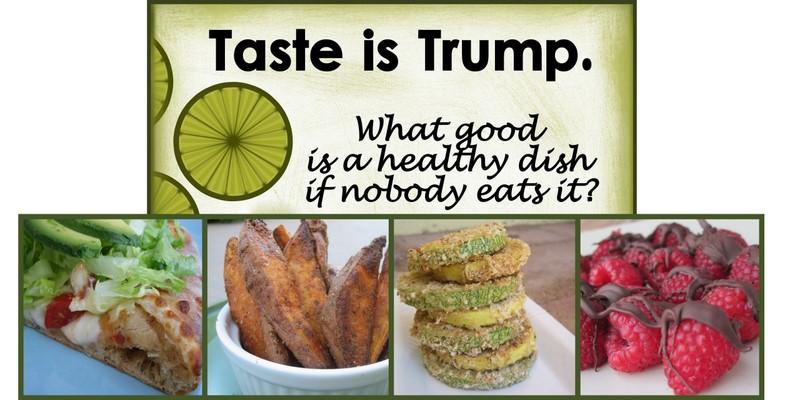It never occurred to me that people might be reading my blog and NOT making the recipes. Kami, from Birth with Confidence is helping me out on this one. There are so many obstacles, it is no wonder many people grab a box of cereal in the morning instead of embarking on a recipe for granola with 14 ingredients, half you have never heard of and 10 plus steps that take almost 2 days to carry out. Yikes! I am scaring you away. On with Kami's tips to bring you back;
1. Read, Read, and then Read some more! There is nothing more powerful than knowledge. Learn about food. Learn about its origins, where it comes from, why we eat it, how it's made. Learn about your body - how it functions and how food affects it positively or negatively. Read anything and everything you can get your hands on about whole, real food. The more you read and learn, the easier it will be to make changes. The changes will come naturally as you learn. If you are trying to make changes without really knowing or understanding deeply why you're making them, it is likely that the changes will not last. However, if you have a foundation of knowledge and understand why you are on your journey to whole foods, you changes will become a lifestyle. Learning also makes changing easier. It isn't hard to stop eating processed food once you understand how truly detrimental it is to your health.
2. Find replacements. Don't learn about how bad sugar is for you and say that you will never eat sugar again. Although that is a wonderful goal, it is probably one that is easily broken by cravings or stress. Instead, find replacements. Instead of white sugar, convert to using honey or maple syrup. Instead of making a cake mix out of a box, try making one from scratch using
whole grains and natural sweeteners. You can still enjoy many, many things while eating only whole foods. Once you've found replacements, you'll realize you really aren't missing out on anything after all. You might even be surprised to find that your whole food meals/treats taste even better because you know deep down that they're better for your body.
3. Commit to change. Do you want to dive into whole foods? Commit to doing so. Commit to ridding your life of anything artificial or detrimental to your health. Make a commitment, and keep it. That's all there is to it. Make the decision.
4. Be daring. Buy new things - branch out. Never heard of kamut, amaranth, sucanat? I hadn't heard of them either. In fact, I read blogs that used those foreign terms for a good 6 months to a year before I ever bought any of those "strange" ingredients. Now those ingredients are staples in my house. Try new things - you'll find that most of the time, you'll love them and wonder why you've been missing out all this time!
5. Don't get discouraged. Moving to whole foods is a journey. It takes time and it takes dedication. We live in a world of processed foods. It is not easy to go against the grain, so to speak. It's not easy to make choices that are different than 99% of Americans. But making choices is not always easy and moving to whole foods is a choice that, hard as it may seem, will bless your life abundantly. Take baby steps - pick one thing you want to change and focus on that thing for a week or a month. Then, move onto the next thing. Or if you're more stubborn, do it all at once (I did!). However you do it, remember why you're changing and remember that you are not alone. Many people are realizing more and more that food, made and prepared the way God intended it, is critical to our health and wellness. Enjoy the journey because soon you'll look back and think "It wasn't that hard, after all."
6. Realize that while you may feel you're paying more for "real food," it is a much better investment. You are investing in yourself - your health, your vitality, your life! Those who eat diets of whole foods and avoid processed foods are healthier and experience less disease than those who eat a diet high in processed foods. You may spend more on your groceries than your friends and neighbors, but it doesn't have to break the bank. There are many ways you can save money. Some quick examples are: buying in bulk, making things from scratch (homemade granola vs. store-bought), meal planning, eating the best quality of meat sparingly, etc. You also may tweak your budget so that, say for example, you spend more on groceries but you go without cable or expensive cell phones. Or, perhaps you eat out less than your family and friends. However you choose to balance your budget, know that eating a diet of whole foods can be done, even on a tight budget.
If you missed it, last week Kami shared an incredible recipe of her own creation; Roasted Vegetables and Garlic Quinoa.
links; Works For Me Wednesday, What's Cookin Wednesday, Real Food Wednesday, Simple Lives Thursday, Things I Love Thursday
links; Works For Me Wednesday, What's Cookin Wednesday, Real Food Wednesday, Simple Lives Thursday, Things I Love Thursday









I am just starting out in a "whole foods" journey, I must say that it can be completely overwhelming if I let it.
ReplyDeleteWhen I think about how far we've come, I'm truly amazed at the changes in our diet.
Since I'm not eating grains, my food budget has gone from $260 per month to $400 per month. Definitely money well spent since I feel so much better!
Thanks for posting these tips! Too bad I didn't know about this when I lived in Mesa!
It's funny that you link to your granola recipe in this post because I am totally making some right now! I've got to go start it dehydrating right now. I altered it a bit. Left out the nuts because I forgot and was too lazy (and they're not soaked so I'm not adding them). Then, I added pumpkin seeds, sunflower seeds, and buckwheat as well. I'm excited to see how it turns out!
ReplyDeleteGood for you Johnlyn, keep me posted on how it is going for you. I am so glad to hear a frugal girl bear witness that it is worth the expense to eat well.
ReplyDeleteMmmm, I love the smell of the granola dehydrating! The last couple of batches I added a few drops of maple extract, so yummy :) I bet yours will be great with the seeds!
Because it might be helpful I also wanted to add my 2 cents as someone who is a lot closer to my nutritional ideals than I once was. I started by eliminating partially hydrogenated fat from our diet and that was a sweeping change. High fructose corn syrup would be another one to eliminate- just because those two are mostly found in highly processed foods. The first book I read was Dr Andrew Weil's book "eating Well for Optimum Health" It was a good start and brought many new ideas since then- I"ve been reading ever since and can't agree more with what Kami said. The other thing I did was purchase "weird things" like sucanat, quinoa, amaranth etc etc before I was ready to use them. I actually kept a list of "weird things I didn't know how to use yet" for that moment when everything came together and I was suddenly ready to try something new. The last thing I've done is imagine food along a continuum from 1 (highly processed) to 10 (raw/whole foods) and really think about where the food I'm eating falls on that scale. Am I drinking a grape flavored drink (a 1) or eating grapes (a 10). I've just tried to move our food as a family closer to that "10" and eat and apple instead of applesauce, for example. Thanks for all your work on this blog Kara- I do make suite a few of your recipes as I'm fiddling with my own and have had nothing but great experiences.
ReplyDeletehey your blog design is very nice, neat and fresh and with updated content, make people feel peace and I always enjoy browsing your site.
ReplyDelete- Thomas
I am somewhere between SAD and 100% Real and love all the new things I learn every day. Cooking has become an adventure and my hobby. Great list!
ReplyDeleteThanks for this- I know what "bad" foods are, and want to eliminate them, but I have a really hard time coming up with "good" foods to eat instead. I love your recipes and especially need more simple food ideas, I do better the more I know about "good" food and how to prepare or serve it. Too often I buy new things (vegetables etc) and then they end up going bad because I just don't know what to do with them.
ReplyDeleteallrecipes.com has an ingredient search, usually google works well too. If you have a particular vegetable that you bought, look up some recipes that it is used in. You might have to rework the recipes a little, but at least you get an idea of what other ingredients it works well with. When you are trying something new, use it while it is fresh. If you wait a week before getting to it, it is not going to taste as good, so it is not a true measure on weather you like it.
ReplyDeleteGood foods are basic; organic vegetables, fruits, pastured animal products, cultured dairy, organic whole grains, nuts and seeds which have been soaked or sprouted.